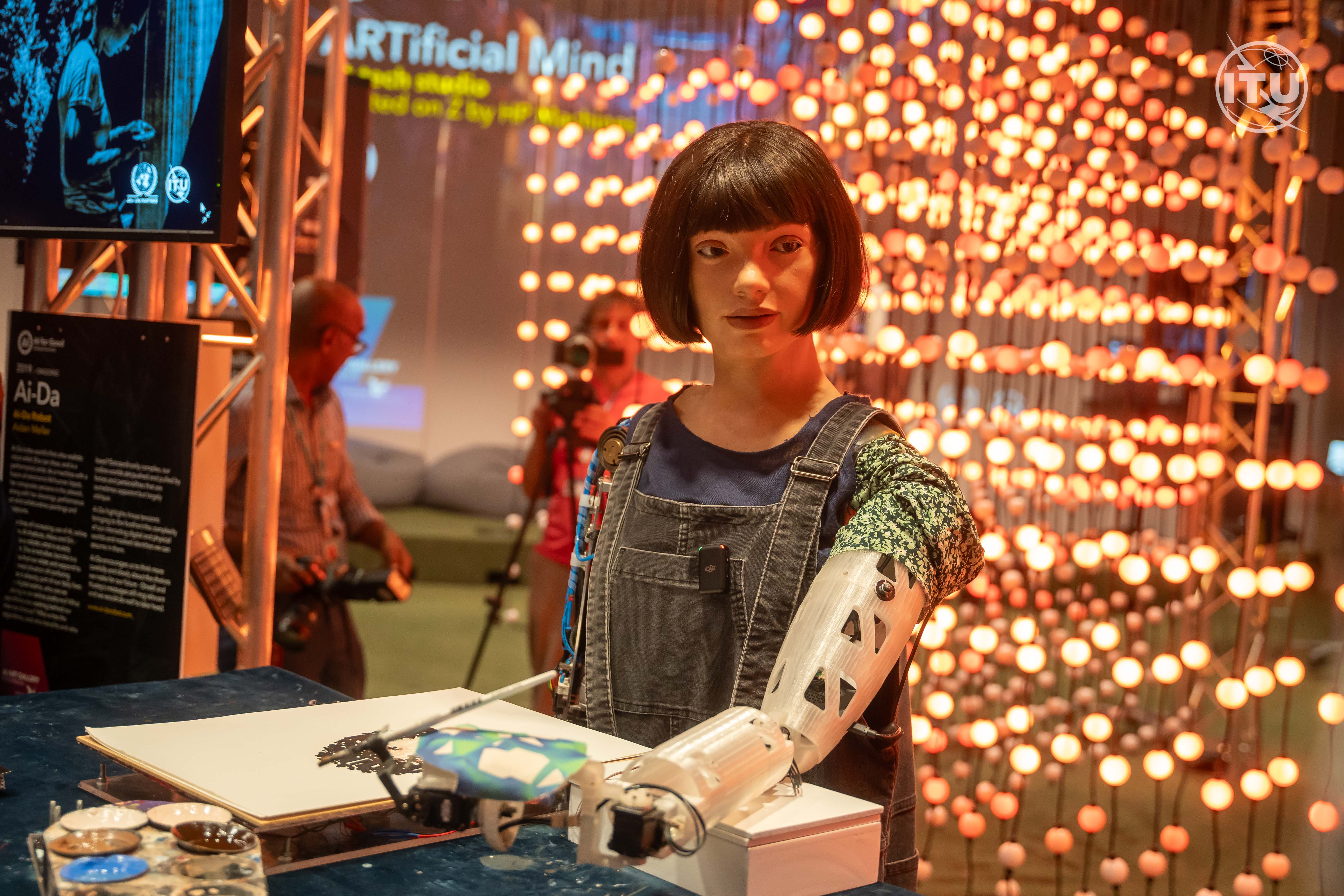AI: What you need to know
Throughout 2025, the International Telecommunications Union celebrates its 160th anniversary.
This blog about artificial intelligence (AI) is part of a series for International Geneva examining ITU’s contribution to pressing global issues, set in a city with a long tradition of multilateral cooperation. To continue the conversation, join ITU at the AI for Good Global Summit in July 2025.
While artificial intelligence wasn’t born yesterday, it may seem that way. Over the last two and a half years, AI has percolated into our dinner conversations, news reports and office strategies.
AI enables machine to mimic human behaviour. AI research, which began in the 1950s, captured the public’s imagination as science fiction. Research gradually led to machine learning, based on algorithms and data. The algorithms sift through unfathomable amounts of data and train the AI machines to learn and grow.
AI seems to be everywhere since large language models became widespread starting in late 2022. Generative AI investments have increased eightfold since then, as people increasingly use chatbots rather than just search engine websites. People can consequently translate, research, edit, write and promote content faster than ever before.
Next is multimodal AI, where queries from images, video and text interact. For example, one can text a question and get a video as an answer.
While we scramble onto the GenAI surfboard, experts are preparing the next AI waves. Autonomous AI grips public attention with the imminent widescale release of self-driving cars, cleaning robots and other virtual assistants. Combined quantum and AI technology solutions are now on the radar, too.
AI’s organic growth brings new urgency to age-old questions about access, equity, privacy, security and environmental impact. People, prosperity, planet – do we have the right balance in that equation, when it comes to AI?
While tussles continue between open access and commercial proprietary systems, governments can shape key policies to achieve preferred outcomes. Even so, out of 69 countries responding to an ITU survey last year, 55% said they lacked a national AI strategy and 85% lacked AI-specific regulations.
We need AI governance, and here’s why.
Life-saving differences
AI already shapes government, business, and research decisions. The more we learn now, the better placed we are to surf the AI waves. AI brings innovations to boost healthcare, climate change mitigation, transportation, agriculture, business efficiency, finance and cybersecurity.
Over the past year, many large businesses have adopted AI strategies to maintain a competitive edge. And countries everywhere use AI to address their development challenges.
What keeps people up at night
AI brings deep change and raises six big questions around AI ethics, strategies and governance.
Who’s in charge: People or machines?
Retraining: Will AI help or harm job markets?
Bias: Will AI widen digital divides?
Privacy: Do we wave it goodbye?
Environment: Will companies pay the price?
Cyberattacks: Is digital infrastructure safe?
Towards AI governance
Neutral global platforms offer an inclusive counterbalance to AI dominance that may widen digital divides.
National and regional development strategies, policies and regulatory frameworks are just starting to address AI in commerce, intellectual property and government services. But the UN Trade and Development agency (UNCTAD) notes that 118 countries are absent from major AI governance discussions.
Meanwhile, technical standards support responsible digital innovation. To date, ITU has published 120 standards on AI, with 130 more under development. These standards enable AI development while aligning it with social and environmental needs.
Where you need to be: The AI for Good SummitSwitzerland is ITU’s co-host for the world’s top forum on AI for humanity. The annual AI for Good Global Summit, begun in 2017 with a focus on innovation for a better future, attracts companies, governments and researchers from around the world. With the boom in AI, interest has skyrocketed. Last year, 5,000 people turned up, many simply curious about the topic. Increasingly, ITU’s annual event features in-depth discussions on AI governance and standards, alongside exciting demonstrations of new technologies. With around 50 contributing partners across the UN system, it has become the global showcase for responsible AI. This year, ITU decided to move the summit to Palexpo, Geneva’s largest event venue, expecting larger-than-ever numbers of participants, and extended the schedule to four days. The rich programme explores AI’s impact under the sea, on land and in the sky, showcasing how these technologies can augment human performance and boost access to critical services – providing we recognize and manage risks. The AI for Good Summit will take place at Palexpo between 8 and 11 July 2025. Key trends and topics include:
In parallel with AI for Good, another ITU-led forum is set to review progress since the historic World Summit of the Information Society (WSIS) that began in Geneva in 2003. Just as importantly, the WSIS+20 Forum High-Level Event will consider the way forward for global digital cooperation beyond 2025. |
